After an IRA bomb tore the heart out of Manchester in 1996, the city faced a long haul to rebuild its confidence. Now lawyers enjoying an economic resurgence claim to be giving London a run for its money, reports Eduardo Reyes.
At the table:
Giles Chesher, Squire Patton Boggs, Nik White, Brabners, Eduardo Reyes, Law Society Gazette, Geraldine Ryan, Hill Dickinson, Amanda Callaghan, Browne Jacobson, Joy Kingsley, JMW Solicitors, Michael O’Connor, Addleshaw Goddard, Paul Jonson, Pannone Corporate, Matthew Taylor, Eversheds Sutherland, Jo McLeod, The Law Society.
The short walk from Manchester Piccadilly station to the offices of Hill Dickinson, host of this discussion, passes a mural of two hands. The index fingers almost touch below the legend: ‘ON THE SIXTH DAY GOD CREATED MANchester.’
This has never been a city short on self-confidence.
For the commercial firms represented at this roundtable, that confidence extends to a conviction that Manchester – not Leeds or Birmingham– is now stretching its lead as the UK’s second legal city. Michael O’Connor, Manchester managing partner of Addleshaw Goddard, attributes the city’s buoyancy in part to its response to the bombing of the Arndale shopping centre by the IRA in 1996. That outrage tore an enormous hole in the heart of Manchester: ‘I think the success of Manchester has been built after the bomb. It’s a city of industry and collaboration, and I think that’s what we’re seeing the benefits of now,’ he says.
Ticking the boxes
Paul Jonson, managing partner at Pannone Corporate, observes: ‘I think it’s got a strong brand that perhaps it didn’t quite have 20 years ago, when I worked in Leeds. There was talk of Leeds being the second legal centre, and I think that’s changed over the last 10 to 15 years.’ Like O’Connor he praises the ‘development of Manchester physically… it’s created an exciting place to live and you’ve got affordable housing. It’s seen as a good place to come and build your career.’
‘It’s not just the soft stuff, which is good housing, good work-life balance,’ Brabners managing partner Nik White adds. ‘The business is here. Taking a broader view, it’s not just Manchester. I’m quite bullish that if you put the south-east to one side, the north-west is the next best place to be. Always take statistics with a pinch of salt, but there are lots of statistics for the market we’re in – mid-market mid-corporate… and the stats back up the fact that the north-west is overstocked with good businesses of that ilk.’
Thriving business
Certainly, all the firms present can point to a three year-plus run of excellent results. ‘We’re finding that business is hot,’ White says. ‘Brexit doesn’t seem to be having any adverse impact. I think there was an adverse impact just before and after the vote for about six months on transactional activity, but that just seems to have been shrugged off. I think it remains to be seen what happens if and when we do actually leave. But at the moment it’s not seemingly having an effect.’
‘The private equity houses have still got a lot of appetite for transactions,’ Squire Patton Boggs partner Giles Chesher adds. ‘They’ve still got big funds. A lot of them are coming towards the end of their funds and want to go out and raise new funds, and they are largely being successful in doing so. That is driving the mid-market corporate side, and a lot of other activity feeds off of that.’ However, he cautions: ‘There is possibly a lack of good assets coming on to the market for them to invest into. That’s maybe cautiousness on the part of sellers, or there just genuinely aren’t those really great businesses around that have been prepped for sale.’
This is not just a corporate law success story. Browne Jacobson’s office head Amanda Callaghan says the office’s progress since opening in 2015 is down to a diversified practice. ‘We have quite a balanced business. We’re in a lot of sectors, and we’ve got a lot of different areas of speciality – we feel that has kept us buoyant over the last few years, in terms of growth,’ she says. ‘We are mindful, like everyone else, of the impact of Brexit on the commercial side of the practice. We haven’t seen the impact of it yet… [and] we’ve decided to stay with the balanced business.’
Financial crisis fallout
White also detects a potential easing of activity: ‘I’d give a slightly more qualified positive story. We had a good last quarter of last year, ended April – good growth, record year. But my sense is there’s been a slight softening. I certainly do wonder whether we are entering into a bit of a vacuum period [if] the current uncertainty continues. Increasingly, you hear stories of big private sector businesses saying they’re going to start putting contingency plans into place.’
All present witnessed the impact of the 2008 financial crisis on Manchester’s legal market. Of necessity, changes were made to the way firms are run.
‘We didn’t [decide] “let’s cut all those junior people, let’s stop taking in trainees”,’ Hill Dickinson partner Geraldine Ryan recalls. Quite the contrary: ‘There [were] some issues around people who just thought they were here forever. So we were brave, in the sense that we tackled the senior end.’
She adds: ‘We had a real focus on growth margin and being much more strict with ourselves about what we take on. It’s all about profitable, sustainable growth. It’s not about bottoms on seats and turnover for turnover’s sake.’
‘We are mindful that the legal profession was very much taken by surprise in 2008, and we wouldn’t want the same thing again,’ JMW Solicitors senior partner Joy Kingsley says. ‘The banks have probably been less willing to lend at the levels that they were doing quite happily at that time – that’s been a good discipline for everybody. I think we just have to be aware that things could change quickly and dramatically when we actually get to the end of all the politicians arguing about [Brexit]. We have to be ready.’
‘Our main thing was not to lose headcount,’ O’Connor says, ‘because otherwise you can’t get it back. You try and find five-year-qualified lawyers when you want them. Then, as we started to pull out of it, we were still there able to respond.’
White and others note Manchester firms are ‘all in varying degrees, diversifying and focusing more on [specific] sectors’.
Clients are not instructing Manchester’s lawyers because they are charmed by their civic pride. So what is the city offering? While a closer focus on sectors has been good for clients and the service and advice they receive, the distinct ‘Manchester’ legal offering nevertheless seems wary of over-specialisation.
‘As a corporate lawyer, you don’t want to pigeonhole yourself into a sector,’ Chesher stresses.
O’Connor adds: ‘In London, I think to differentiate you have to go narrower. In Manchester and Leeds, less so, and [in] Glasgow and Edinburgh, less so again.’
GIVING BACK
Many of those present came forward to offer pro bono legal support to families and victims of the Manchester Arena bombing in 2017.
‘We do work exclusively with local charities,’ Pannone Corporate’s Paul Jonson says. Often staff ‘have got some close personal links’ with them.
JMW Solicitors chooses two ‘charities of the year’ – one selected by staff, the other by the board. Senior partner Joy Kingsley says the firm also runs a free legal advice line for cancer charity Maggie’s, and in common with other firms present, allows staff time off for charity and community work.
The Hill Dickinson Foundation, funded by contributions from the partners, donates to charities linked to the firm’s core areas of work such as healthcare and marine. Addleshaw Goddard’s Manchester office has prioritised support for activities to promote social mobility.
Breadth of experience
‘We’ve interviewed people coming out of magic circle, or American firms, who’ve done a couple of years in London,’ he continues. ‘Actually, the breadth of their experience is not good enough for them to come in at that level at our firm. They’ve been doing such a niche aspect of a tiny fraction of a massive deal. So if you say, “I want you to be number three on this transaction”, their heads would explode, because they don’t understand how a transaction or a piece of litigation fits together. The breadth of experience the juniors are getting in Manchester is better, certainly, versus the magic circle firms.’
Cross-border instructions
Manchester firms also report a thriving disputes side, including cross-border instructions. ‘The trend I’ve noticed in the last couple of years compared to five years ago is things are running further in disputes,’ Eversheds Sutherland partner Matthew Taylor notes. ‘You’re getting good, old-fashioned High Court proceedings that are running further, as opposed to immediate post-2008 letters of mediation and the deal done. That’s for two reasons – a bit more liquidity, [so] people are prepared to invest in the investigation a bit more. Also, the big change we’ve seen, certainly in the last 12 months, is in the litigation funding market.’
Jonson reports a rise in shareholder disputes and derivatives claims. And he ventures: ‘We think disputes around loss of data and its misuse are something that we need to invest in over the next couple of years. It’s something that we’re looking at because the Information Commissioner isn’t going to have the resources to police all those issues.’
Kingsley is seeing significant employee claims, including acting for 6,000 Morrisons employees who joined an action following a serious data breach.
Ryan adds: ‘From a litigator’s point of view, people are coming to us before they do things. Once upon a time you’d get a phone call… much to my surprise, corporate colleagues [are] bringing down warranties and indemnities saying, “Does this work?” instead of coming to me afterwards and saying, “Enforce that!”.’
How do those present view ‘north-shoring’? For a sophisticated market like Manchester, does being seen as a location for ‘low-cost’ or ‘back office’ functions rankle?
‘North-shoring’
Talk of ‘north-shoring’ is an over-simplification of the new office openings in Manchester, several note. Ryan points out: ‘One of them has 350 people at the moment, and they’re looking to double that by 2020 – but instead of that being with paralegals and back office, it is going to be lawyers.’
New entrants can find themselves competing for the same people, from paralegals and secretaries to partners. And some are at a disadvantage in being new to the market: ‘We’ll see people that they recruit and think, “well, they’re moving on again, are they?”.’
Ryan adds: ‘I’ve also had experience of some of our document support team going to one of [these new entrants] and then realising that they were sat in a factory, that nobody ever spoke to them, and it was just “work-sharing”, they had no interaction with any lawyer – they never saw a lawyer. We’ve had junior assistants go in, and then ring us up and say, “I want to come back, because I never see a client, and all I’m doing is due diligence and I’m locked in a room just doing due diligence, and it’s just desperately dull”.’
Browne Jacobson is the newest market entrant represented at the roundtable. Callaghan is very aware of the dangers here: ‘We’ve been really careful about that, because as you say, when you are new kids on the block, you’ve got a good reputation nationally [to protect].’
‘Five years ago, Taylor observes, ‘people were coming back north after they’d done their London stint. [But] we’re now recruiting people who aren’t – they haven’t got ties with the region, they want to follow the good-quality work, and they’re coming into this region for the work. They’re not just coming home.’
Technology challenge
Technology is starting to change legal practice across the sector. What is the impact for firms represented here? Responses vary. Chesher says: ‘The key focus for us has been having robust systems which allow accessibility so that people can work flexibly [and] clients can access the system and look at documents in real-time.’
‘Technology is the second-biggest investment of the business at the moment, after people,’ Taylor says. ‘That computer-assisted advice piece, that’s just a big, big focus for us. We’re now delivering projects for clients where the lawyers are involved at the front, set the computer running and the computer delivers the legal services.’ In his sphere, Taylor says, technology ‘frees up your junior lawyers and the more senior lawyers to do the more complex work, which is actually where clients are willing to pay the money’.
Real-time work in progress
General counsel clients, O’Connor says, expect technology to be core: ‘They want to know what you’ve got, how are you going to use technology to help drive our costs down? They want to have access to real-time work in progress, efficiency, write-offs on your files. That’s all very here and now, for us.’
There is an acknowledged challenge in technological advances, Taylor adds: ‘Development of junior lawyers is going to be different five years from today, and I think that’s a real challenge for the profession as a whole. The work you cut your teeth on is going to reduce and we’re going to have to grapple with how we deal with that.’
O’Connor outlines what junior lawyers can expect as some work they would have done becomes automated: ‘What we’re trying to do is say, for the first four years of your qualification, we’ll be using work allocation models. So, you might work in a team, because every team now looks like a village.’ He continues: ‘In your first three to four years you’ll have a log book that says you’ll work on a corporate deal [for example]. Not lead that deal, [but perhaps be] number three. You might work on a construction matter, and at the end of it you’ll come out a broader, more well-equipped commercial lawyer able to deal with what comes at you.’
Location, location
As for the immediate future, the table is sanguine. As Ryan concludes: ‘Manchester and the outer surrounding areas are a nice place to live, and I think that’s very important. Although I’ve spent all my career in the north-west, we’re increasingly seeing people who have gone down to London for a few years, but want to come Back. They want to establish a lifestyle which enables them to go to the lakes or pop down to north Wales.
‘London is only two hours away on a train if they want to go down there for work or for pleasure. That enables us to attract and retain talent. Most of our trainees live in town. We’re getting good-quality work up here as well, because we are able to give the London firms a run for their money on price, but we don’t want to pile it high and sell it cheap. The people in my team know that they’re going to get good-quality work, but they can have a good lifestyle too.’
This roundtable was kindly hosted by Hill Dickinson in Manchester























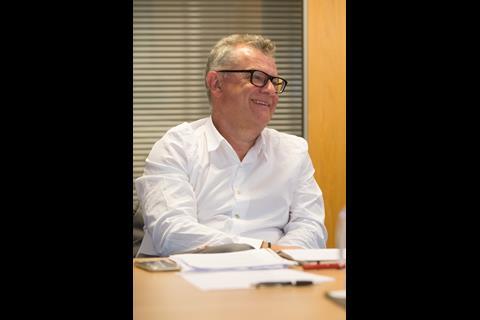

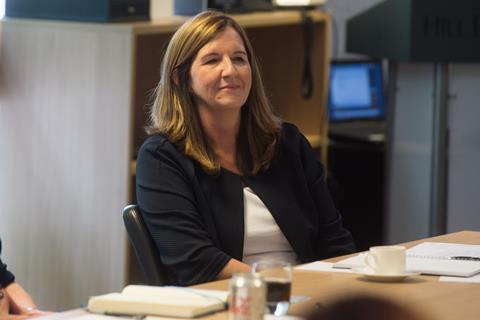
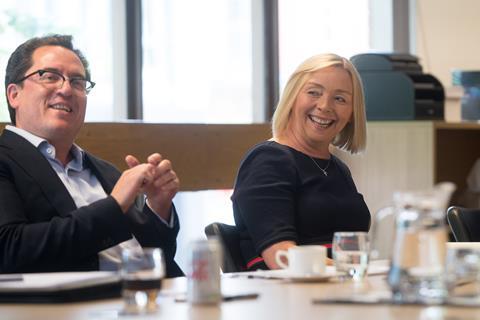

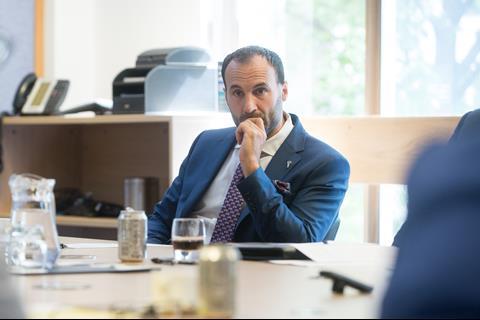


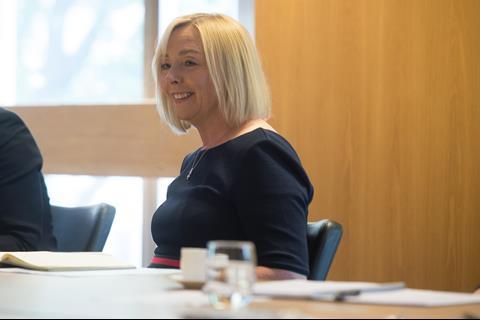
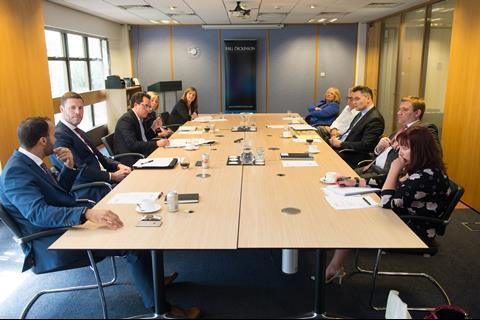

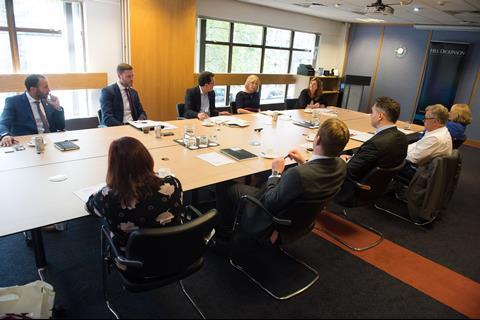

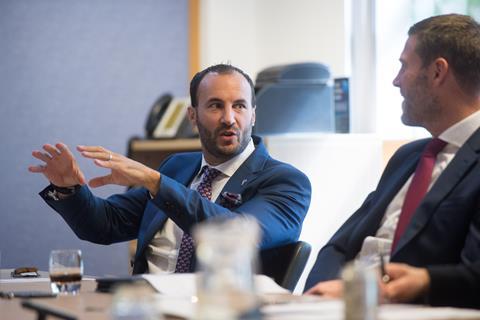
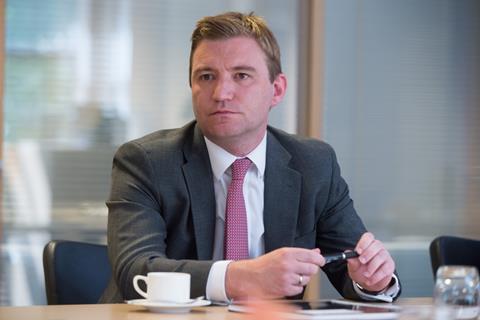

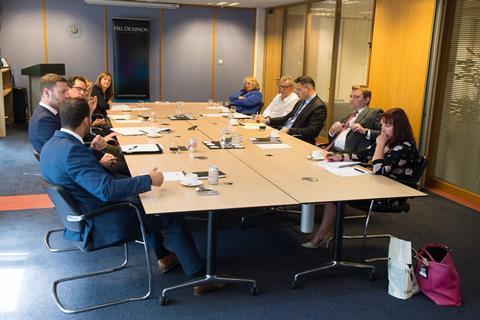
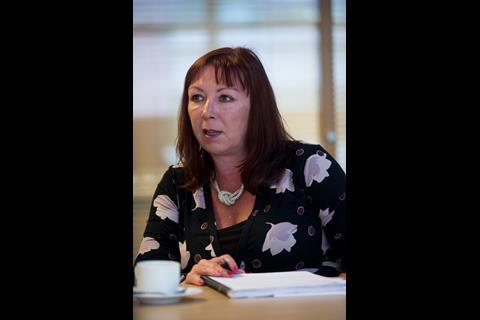
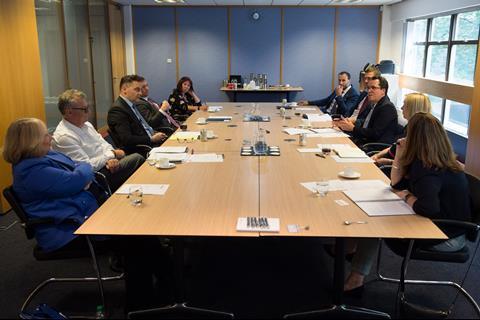
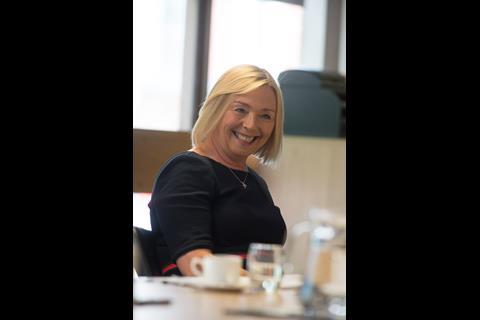
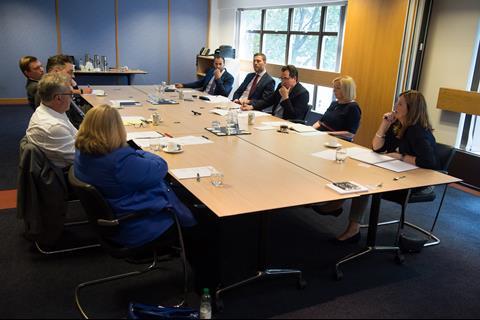
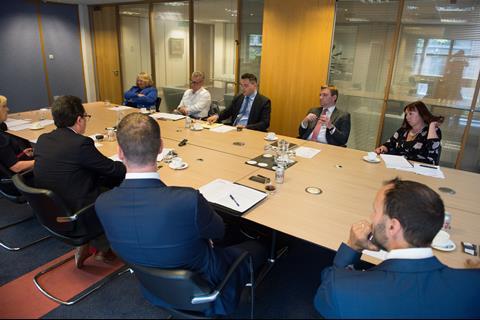
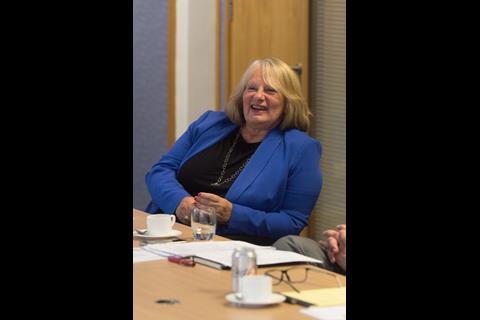
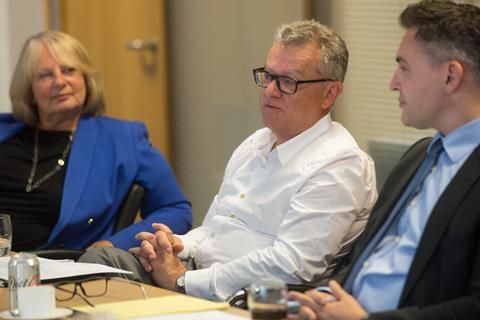
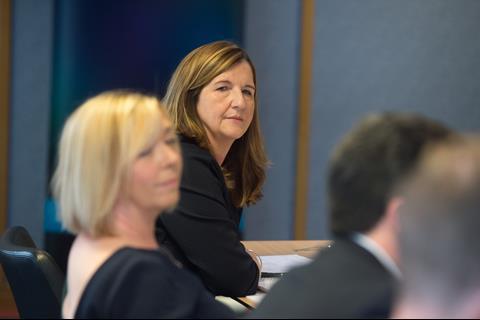










No comments yet